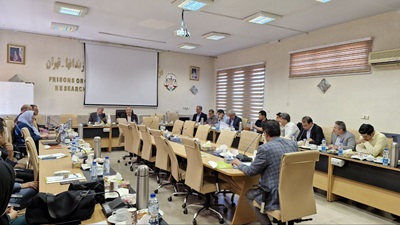UNODC Iran Supports improving Health Conditions of Inmates
|
|
The United Nations Office on Drugs and Crime (UNODC) works towards advocating for harm reduction programs within the Iranian penitentiary system, specifically targeting individuals with drug dependencies. The organization promotes a human rights-based, gender-responsive, public health-centered, and evidence-based approach, aiming to eliminate stigma, discrimination, and violence within these facilities.
Iran faces a grave challenge in the drug abuse, grappling with one of the highest rates of opiate use worldwide, alongside a significant prevalence of amphetamine-type stimulant abuse. In response, opioid substitution therapy (OST) has emerged as a proven intervention, replacing illicit drug use with medically prescribed, orally administered opiates such as buprenorphine and methadone. While methadone maintenance therapy has been the cornerstone of OST for the past two decades, the introduction of buprenorphine in recent years calls for a comparative research study to gauge their effectiveness in this unique setting.
With the support of UNODC Iran, the Iranian Drug Control Headquarters, and the Iranian Prisons Organization, and the Iranian National Center for Addiction Studies (INCAS), functioning as the implementing and technical agent, conducted a two-day training program for research assistants. The training aimed to bolster ongoing efforts in addressing drug use issues among inmates, funded by the UNAIDS UBRAF grant, for the study titled “A Comparative Research Study of Evaluating the Efficacy of Buprenorphine with Methadone substitution therapy in Prisons.”
During the training program, national partners emphasized the alignment of this training with the country’s overarching policies, which aim to diversify the treatment portfolio and promote Buprenorphine Maintenance Treatment (BMT) as a replacement for Methadone Maintenance Therapy (MMT) within prison facilities. Importance of enhancing the expertise of professionals working with inmates, facilitating accurate data collection to evaluate the effectiveness of BMT, thereby significantly influencing the country’s treatment roadmap was highlighted.
Alexander Fedulov, UNODC Iran Country Representative, expressed his appreciation for the implementation of this comparative research study on the effectiveness of methadone and buprenorphine maintenance therapies within the prison setting. Acknowledging the substantial number of inmates benefiting from opioid substitution therapy in Iran, currently exceeding 80,000 individuals, He noted the significance of this research endeavor.
The training brought together experts well-versed in drug use disorders from the provinces of North Khorasan, Kurdistan, Khuzestan, and Fars. Topics covered during the two-day program included rapid HIV testing, evaluation of high-risk behaviors, assessment of quality of life and treatment satisfaction, and an in-depth review of the Addiction Severity Index (ASI).
This collaborative endeavor between UNODC Iran and its national stakeholders holds promise for advancing Iran’s drug treatment initiatives within correctional facilities and among inmates. By conducting a comprehensive comparative study on the efficacy of buprenorphine and methadone maintenance therapies, the project aims to enhance the evidence based and informed critical decisions regarding inmate care and the future direction of drug treatment in Iran.



